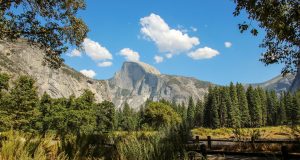Submitted by Jane Irion Yosemite High School Student Journalist
OAKHURST – Amidst a global pandemic there is an underlying consequence not getting much media attention.
Elderly isolation is a serious and even lethal issue that has affected communities globally and locally. I interviewed two women from the Oakhurst community about how the global pandemic has affected them and how they are dealing with quarantine.
Elderly isolation, to many people’s surprise, has physical consequences. A study was done by the National Center for Biotechnology Information titled “Prolonged Social Isolation of the Elderly During COVID-19.” It was concluded that social isolation can lead to vascular and neurological diseases and even premature death. This article even states that “social exclusion is significantly associated with higher risks of cognitive impairment, which, in turn, increases the risk of Alzheimer’s disease and accelerates disease progression of existing conditions.” The elderly population of Oakhurst isn’t immune to this issue.
I sat down (or rather Zoomed) with two women who have been greatly affected by the global pandemic, Ginger Straughn and Sandy Edmondson. For them, a typical week before COVID-19 consisted of going to volunteer at the Methodist Church thrift shop, book club, traveling to see family, meetings for the Board of Trustees for the Methodist Church, and other community service groups.
They estimated that ¾ of their week was spent seeing friends and/or family. All of this changed in the last year. Now during COVID-19 the only going out is to the grocery store and back home, if a family member doesn’t do it for them.
However, each of these women are in different situations.
Ginger Straughn is quarantined with her husband of 60 years, Jerry, she has a daughter that lives in Oakhurst who sometimes buys her groceries and tries to generally help out. Ginger and Jerry recently missed celebrating their 60th wedding anniversary because of COVID-19. Health-wise, Ginger has strict doctors orders to stay inside and be cautious. When asked to rate how scared she was on a daily basis she said an 8 out of 10 which she said was partly a result of her doctor heightening her fears and emphasizing how important it is to stay at home for her.
Sandy Edmondson lives alone and so her usual social life which was filled with friends has been reduced to phone calls and Zoom calls which she says are “not nearly personal enough.” Sandy goes 4 days a week without seeing anyone in person, but she makes a phone call every day.
Her family lives in the Bay Area so they can’t come and visit or help out. Recently she traveled to visit her family after going a full year without seeing them. Sandy has also had more anxieties outside of COVID-19 such as recent political events. She said “the news, especially what happened at the Capitol, has made me feel more depressed and out of control.” Sandy and Ginger’s desire to avoid the news is a sentiment shared by many.
When asked what they miss most they both agreed it was socializing. They missed going out for lunch with friends and previously planned trips to the Bay Area and Hawaii. Ginger Straughn said she also missed hugs throughout these difficult times. The six feet social distancing rule is hard for people who like to make more personal connections with people they meet. Living within your own physical and social bubble can get lonely.
When asked if they were staying positive the answers were grim. They said that they were having trouble, but were using prayer as a way to keep their spirits high.
Sandy and Ginger’s tips for staying positive during these rough times are to try to consume positive media and to talk to as many people as possible through calling friends, family, or neighbors.
They recommend smiling and laughing as much as possible and loving everyone.
Elderly Isolation is a serious issue affecting thousands of at risk, elderly individuals. Because COVID-19 more heavily affects the older population many people ignore the serious consequences, but we should not ignore the struggles of the people we are tasked to protect and care for. Next time you see an elderly person you know in your community ask them about their day because you may be the only person they talk to all week.




